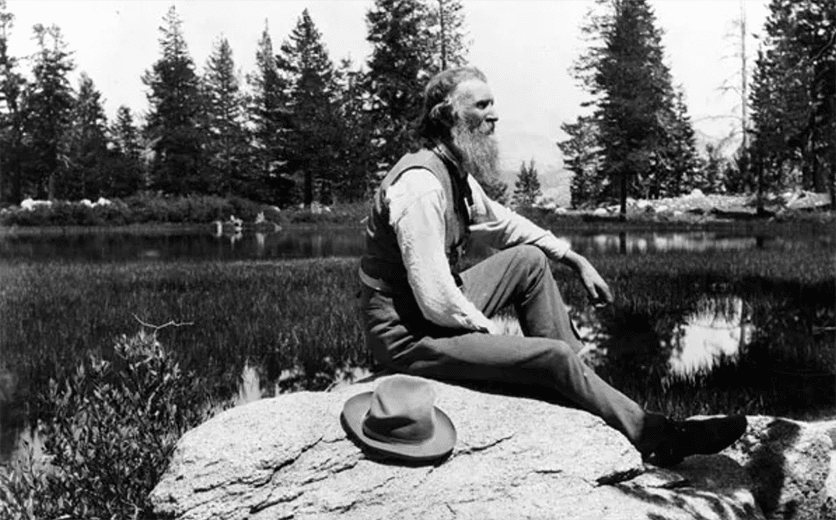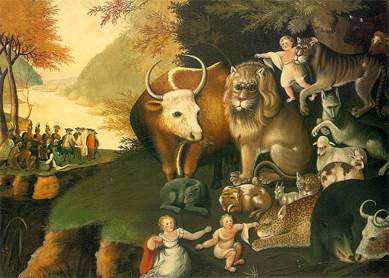The Bible’s place in modern environmental movements is complex. It involves not only how environmental activists and organizations make use of biblical texts and themes but also how the Bible may have influenced widespread attitudes and assumptions about contemporary environmental challenges. Modern environmental movements also open new directions for contemporary biblical interpretation.
How has the Bible influenced modern environmental movements?
Scholars and activists have debated the influence biblical texts and interpretations have had on modern environmental thought and action. The creation stories in Gen 1–3 have been an especially hot topic. One influential argument insists that the biblical account of creation—especially within Western Christian interpretations—shaped the worldviews and practices that gave rise to today’s environmental crises. These environmentalist critics lament creation’s hierarchical order in Gen 1 and the divine mandate to Adam and Eve to “subdue” the earth and exercise “dominion” over it (Gen 1:28). They critique the fall motif in Gen 3, which seems to normalize rivalrous relationships between human beings and the rest of creation (Gen 3:14–19). On this view, a fundamental challenge for contemporary environmental movements is to expose and transform the exploitative attitudes toward nature that are embedded within Western civilization’s Bible-shaped and colonially spread mindset.
A contrasting view emphasizes a biblically based theme of environmental stewardship. This view centers on texts like Gen 2:15, which suggests that God put human beings in Eden to “till and keep” the garden, arguing that the Gen 1:28 concept of dominion should be interpreted in light of this gentler earthkeeping role and in harmony with wider canonical concepts of dominion exercised as covenant fidelity, parental nurture, or self-sacrificial love. These interpretations argue that the Bible conveys to humans an ethic of responsible care for God’s creation. On this view, biblical theology contributed to cultures of earth care, implanting ideals that eventually bore fruit in the emergence of modern environmental movements like conservationism and sustainable agriculture.
Both views agree that the Bible has deep and enduring influences on present environmental beliefs and practices, that this influence extends far beyond communities of biblical believers, and that many forms of modern environmentalism stem from the subtle ways the Bible has shaped modern cultures, especially attitudes toward earth and nonhuman species.
How have activists used the Bible when discussing environmental issues?
Another common way to explore the Bible’s role in modern environmental movements is to track how leaders use the Bible in their discussions of environmental issues. It is frequently noted that John Muir, “Father of the National Parks” and hero of the movement for wilderness preservation in the United States, had memorized the entire New Testament and three-quarters of the Hebrew Bible. His influential writings in the late nineteenth and early twentieth centuries made creative use of a range of biblical motifs and texts, notably the Psalms. Aldo Leopold, another icon of North American environmentalism, published an amateur study of the ecological insights of the biblical prophets in 1920 called The Forestry of the Prophets. Leopold wrote that the field of wilderness management was “discovered” by “the children of Israel.” The popular agrarian author and activist Wendell Berry complained that Christianity is often “not earthly enough” but argued that the biblical command to “love thy neighbor” involves efforts to love all creation through tangible (e.g., agricultural) practices.
When Evangelical Christian leaders lobbied Congress to uphold the Endangered Species Act in 1996, they referred to environmental legislation as “the Noah’s Ark of our day.” More recently, the climate activist and nature writer Bill McKibbon published a book on Job (2005) that aimed to offer biblical wisdom for an age of ecological destruction and renewal. Pope Francis’s widely discussed encyclical on the environment, Laudato Si (2015), opened with references to Rom 8:22 and Gen 2:7 and includes a section on “The Wisdom of Biblical Accounts” in his appeal for global dialogue and action on climate change.
But environmental movements in North America and around the world are more often led by ordinary people, grassroots participants, and frequently by women and people of color, whose engagements with the Bible have rarely featured in the commentaries of reporters, scholars, or policy-makers. There has been remarkably little analysis so far of the roles the Bible may play in grassroots movements for environmental justice, food sovereignty, or the environmentalism of the poor.
Leaders within North America’s antienvironmentalist movement—statistically most associated with white Evangelical Christians—also engage the Bible, often appealing to concepts of divine providence and promises of ecological stability (e.g., Gen 8:22) to argue against the notion that humans could negatively impact earth’s systems. But some scholars (e.g., Globus Veldman) argue that climate skepticism among white Evangelicals owes less to biblical theology than to contingent political alliances and cultural dynamics forged only in the last few decades.
How have modern environmental movements influenced biblical interpretation?
The engagements with biblical texts discussed in this essay so far share one common feature: they stem from people confronted with and challenged by modern environmental problems. Especially since the mid-twentieth century, growing awareness of ecological vulnerability and the emergence of diverse forms of environmentalism have inspired interpreters to (re)consider what the Bible may have to say about ecology and environmental concerns.
This trend is reflected in studies like Leopold’s and McKibbon’s, but it also appears in a growing corpus of biblically engaged environmental statements by Jewish and Christian bodies, sermons and religious education curricula, and academic books and articles. For example, the biblical scholar Ellen F. Davis writes in Scripture, Culture, and Agriculture (2008) that her way of interpreting the Hebrew Bible has been deeply influenced by the neo-agrarian movement and its efforts to counter the global hegemony of industrialized agriculture. Rabbis Yonatan Neril and Leo Dee consider the Bible’s ecological message in Eco Bible (2020), writing for a general audience concerned by modern environmental challenges. The Coalition to Dismantle the Doctrine of Discovery—an Anabaptist and Indigenous-led campaign to protect the earth from colonial exploitation and to support Indigenous self-determination—offers Christian congregations resources on biblical interpretation inspired by movements for Indigenous rights and environmental justice.
These examples reflect a much wider phenomenon: efforts to engage today’s environmental issues spark inquiry into biblical texts and open important trajectories for biblical interpretation.





